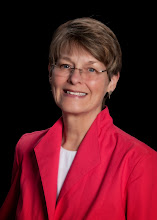We evolved as hunters, always on the move, following the game. We wore down our prey by persistence, slowly and steadily covering the miles, wearing them down. As we moved, we learned. We learned where to find our prey, how they behaved, how to pursue and engage. Our highly developed brains compensated for weak and naked bodies. We developed tools, traps, and strategies. Always moving.
According to Dr. John Ratey in Spark, the connection between movement and memory is, for humans, inseparable. Dr. Ratey begins his book with the remarkable tale of a high school in Illinois, where students wear heart rate monitors and are challenged to push their physical limits during the day. They not only rank much lower than their peers in obesity, but their scores on tests of intellectual accomplishment are off the high end of the scale.
How many times a day do we make, or hear, a joke in reference to memory? We talk about "senior moments" (and everyone knows,it’s not about a discount). We are scared. As a generation, we are scared of dementia. It is tougher to face than heart disease and cancer combined. Losing our mind. Losing our selves. Before losing our lives.
Memory and learning rely on the ability of brain cells to build a path. “Where did I leave my keys?” “On the desk.” That simple sequence arises from nerves that connect the question and the answer in the brain. The maintenance and expansion of neural pathways requires a fine balance of neurotransmitters. Psycho-active drugs make a clumsy attempt to rectify imbalance; physical activity is designed by nature and does a better job.
According to Spark, Dr. Carl Cotman’s research on brain aging and dementia has demonstrated “a direct biological connection between movement and cognitive function.” Pictures of the brain after exercise show an increase in chemicals that stimulate the proliferation and connection of neurons in the learning center of the brain.
Last week we talked about the benefits of exercise for motivation, focus, and calm. This week we are examining the link between exercise, learning, and memory. Taken together, the complex interaction of movement and the mind makes a powerful case for getting off the couch and getting a move on. Maybe the next time it won’t take quite as long to find those keys.
What is your experience? Does this make sense? Do you want to learn more? Does your “senior moment” mean running into an age-mate, or does it mean that you forgot her name?
Until the next time, go well.
Pam
Subscribe to:
Post Comments (Atom)

1 comment:
Just another reason to stay active!
I call my moments "mom moments" as I don't quite fit the category of senior yet! But I do agree that I am more creative and less "dim" when I am off the couch and moving!
Thanks again for another great post, Pam!
Jen
Post a Comment